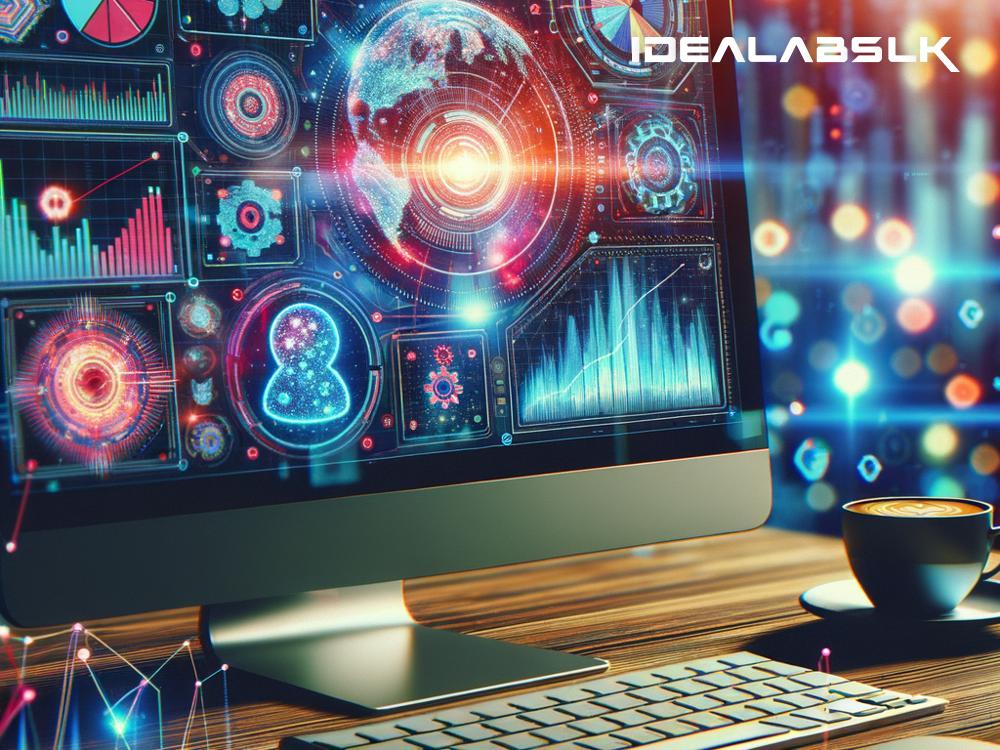In today's digital age, social media isn't just a hub for sharing selfies and what we had for lunch; it's a goldmine of data waiting to be explored. Businesses, influencers, and marketers are constantly looking for insights to better understand their audiences, optimize strategies, and boost engagement. Here's where Artificial Intelligence (AI) steps in, offering a powerful set of eyes and brains to make sense of this vast trove of information. But how exactly does AI weave its magic in social media analytics? Let's break it down into simple English.
Understanding AI in the Social Media Realm
Think of AI as a super-smart assistant that's really good at finding patterns and making predictions. In the realm of social media, it dives into the ocean of data generated by users—such as comments, likes, and shares—to unearth valuable insights. This data isn't just huge; it's complex, consisting of text, images, videos, and emojis. AI uses different techniques to process and analyze this data, helping us draw meaningful conclusions from what might look like chaos at first glance.
The Mechanics of AI in Social Media Analytics
-
Text Analysis: Social media is teeming with text—tweets, comments, status updates—you name it. AI uses Natural Language Processing (NLP) to understand this text much like a human would but much faster. It can gauge the sentiment behind a comment (positive, negative, neutral) or classify content into categories (sports, politics, technology). This helps brands to understand public sentiment about their products or services and even catch potential PR crises before they blow up.
-
Image and Video Analysis: With platforms like Instagram and TikTok booming, visual content is king. AI steps up with image and video recognition capabilities. It can identify objects, scenes, and even emotions in images and videos, helping brands understand how their products are being used or perceived in the wild. For instance, if lots of people share images of themselves hiking with a particular brand of backpack, the company can spot this trend and perhaps launch a targeted marketing campaign for outdoor enthusiasts.
-
Personalization: Ever wondered how social media platforms seem to know exactly what kind of ads you're most likely to click on? That's AI in action, using your past interactions to predict what content you'll find engaging. This helps businesses target their advertising more effectively, ensuring they're reaching out to the audience most likely to be interested in their products.
-
Trend Detection: AI is like the world's most attentive observer, constantly analyzing social media data to spot emerging trends. This could be anything from a sudden spike in conversations around sustainable living to a new meme format taking off. Brands can use these insights to jump on relevant trends, making their content more engaging and timely.
The Benefits of AI-Driven Social Media Analytics
-
Efficiency: Manually analyzing the sheer volume of data generated by social media platforms would be akin to finding a needle in a haystack—every single day. AI does this heavy lifting in a fraction of the time, allowing businesses to react swiftly to insights.
-
Accuracy: Humans are great but subject to biases and errors, especially when tired. AI, on the other hand, can maintain a high level of accuracy in its analyses, as long as it's been properly trained.
-
Depth of Insights: AI can reveal connections and insights that might not be immediately obvious to human analysts, providing a deeper understanding of audience behavior and preferences.
Ethical Considerations and Challenges
While AI in social media analytics opens up exciting possibilities, it's not without its challenges. Privacy and ethical concerns top the list, as businesses must navigate the fine line between personalization and invasive surveillance. Additionally, AI systems are only as good as the data they're trained on; biases in this data can lead to skewed or unfair outcomes.
Wrapping Up
AI is revolutionizing how we approach social media analytics, turning what used to be an overwhelming deluge of data into actionable insights. From understanding audience sentiment to spotting the next big trend, AI tools empower businesses to make data-driven decisions, tailor their strategies, and connect with their audience in more meaningful ways. Like any powerful tool, however, it comes with responsibilities, urging us to use it ethically and considerately.
In essence, AI in social media analytics is about smarter, not harder, work—a guide in the complex digital landscape that helps shine a light on what truly matters to audiences. The future of social media marketing is undoubtedly data-driven, with AI leading the charge towards more engaging, personal, and effective strategies.

